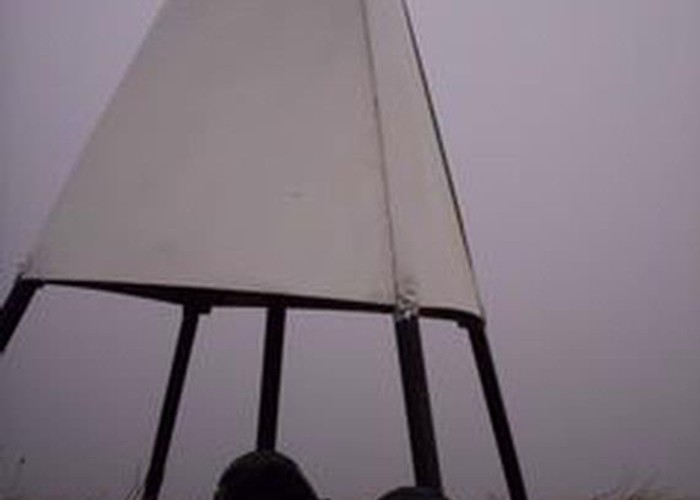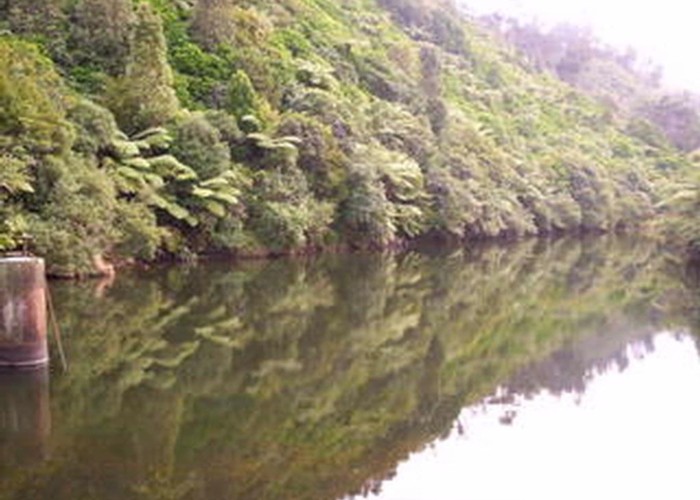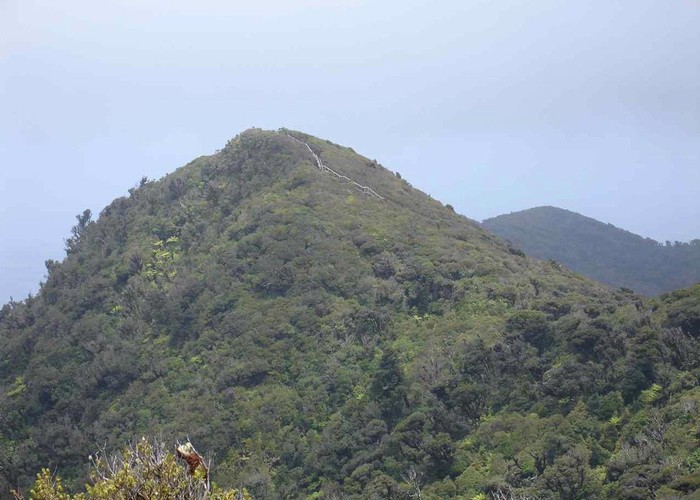Te Araroa: The New Zealand Trail

Geoff Chapple
264 pp, Random House 2002
Here at New Zealand Tramper, one of the most frequently asked questions is "Do you have any long walks, like perhaps the length of the country?" I always give my disappointing but honest stock answer: "No." Yet long trails are becoming popular around the world, from the Appalachian Trail in the States, to the Trans Canada Trail, to the Offa's Dyke Trail in the UK. So why don't we have one?
Actually, the idea is not new here. Back in 1967 a long walking trail running the length of New Zealand was first suggested, and the New Zealand Walkway Commission was duly set up to oversee the project. But the trail was soon abandoned in favour of shorter local walks, and the walkways we have today are the legacy of the Commission.
But then in 1995 Geoff Chapple, an Auckland journalist, wrote a newspaper article presenting his vision of a 2600km walking trail from Cape Reinga to Bluff: Te Araroa.
The trail doesn't yet exist. It is a patchwork of existing trails, potential trails over public land, roads, and sections crossing private land. But the Te Araroa Trust, which administers the project, is making progress. You can check where it's at by visiting the Trust's website: www.teararoa.org.nz.
In 1998-99 Geoff walked the North Island section of the route, and then last year he completed the South Island section. He obtained one-off permission to cross the private land along the way. And this book is the story of his walk.
And I have to say it's a gripping read, a detailed and personal portrait of People and Land. We are most used to car travel – it is natural to us now. From a car, only the road is constant: everything else blurs into a continuum, a summary: grass, hills, towns, unless they are the destination they are immediately forgotten. But to walk is a much more intimate way of travelling. Your eye and your mind can rest on every blade of grass, every fencepost, every stone, every broken bottle. You can tell your story to every person you meet along the way, and listen to theirs. And Chapple meets a lot of people. Peter Burrowes on the Brynderwyn Walkway who talked of the second death and looked after the section of track outside his house; Bob Harvey, the mayor of Waitakere City, who joked about losing his faith as he sank waist deep into water weed; Toots, the tattooed cop from Benneydale who spraypainted Geoff's route into town on the road at the junctions; Axe-murderer Helen, the champion table crawler on the Tongariro Crossing; Alf, the unseen, legendary warden of the Hamilton Hilton, a Canterbury backcountry hut; the Ngamoki brothers, who find a disshevelled and penniless Chapple sleeping in a Koitiata toilet and bring him home for breakfast.

Forty years before Chapple and at the age of 85, the famous New Zealand publisher, A H Reed, walked the length of the coutry by road. But Chapple avoids the roads where possible and in so doing faces the grand but raw and uncompromising landscape of this country. His land, grand but finely observed: the tedious, waterless curve of Ninety Mile Beach; the exhausting scree slopes of Mount Rintoul; the muddy ledge on the banks of the Tokomaru that stopped Chapple in his tracks for several pages; the menacing whirlpools of the Whanganui River; the savannah-like grasslands of the St James Station; the wide crossing of the Rangitata River valley, and the grave on its far bank of Dr Sinclair, the colonial secretary who didn't make it across; the volcanic throat of Ruapehu: "If you wanted to see Dante's innermost stone circle of Hell it was embedded right down there in the moonlight."
All long trails are journeys of self discovery, and life for Chapple becomes a much simpler thing. The occasional, jarring intrusion of everyday life -- the latest cricket news in the Richmond Ranges, the unsolicited, anonymous cell phone message by the canals of the Mackenzie Basin – these interruptions seem trivial and irrelevant, even impertinent. The long walk teaches you to re-evaluate the moments you fill your life with.
My mind was a blank, and it occurred to me this might be the actual, final and happy condition of a long walk. All those long days when there'd been nothing but the light on the grass, the next turn, the glad hut. To walk, to eat and drink, to find shelter, to sleep. Those were the four corners of my universe.

